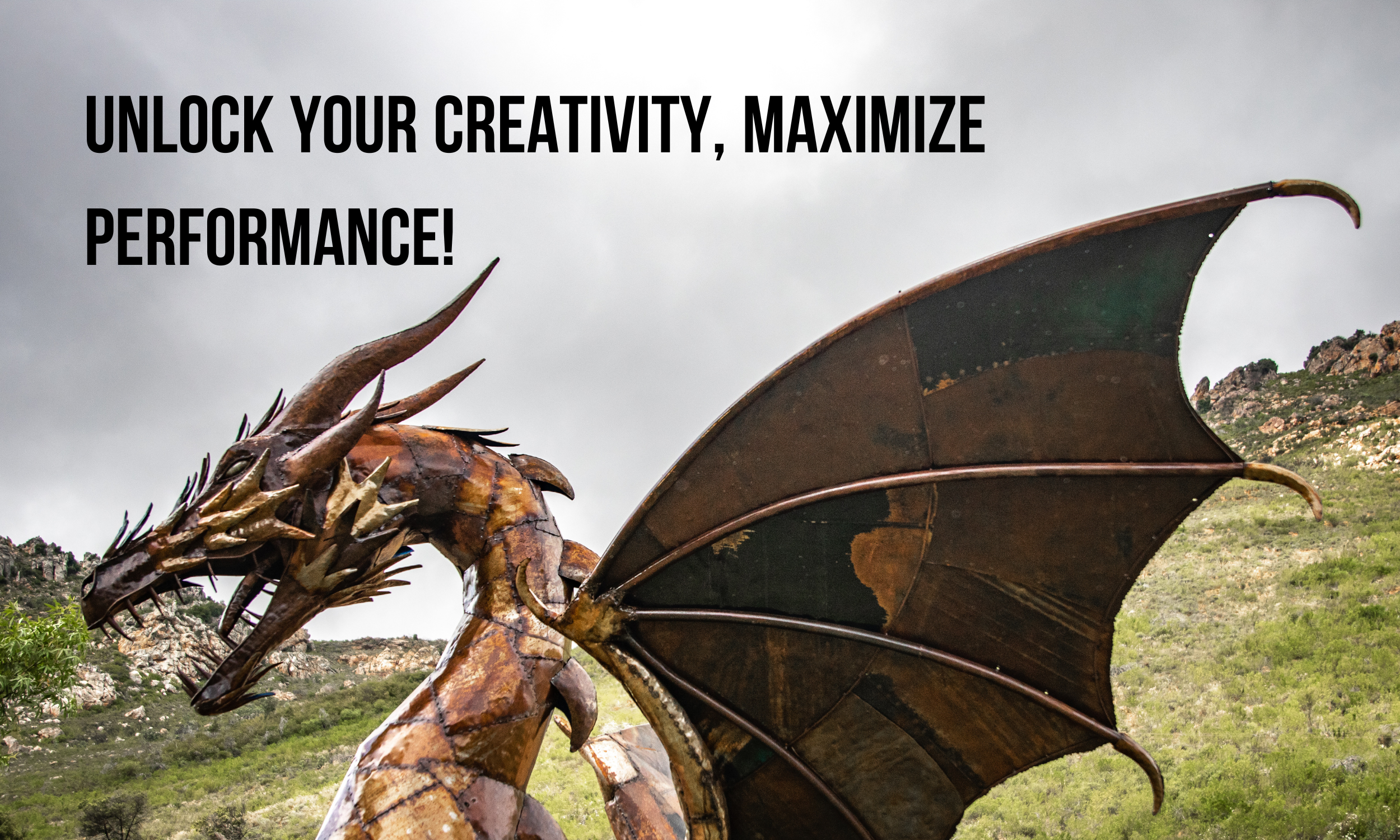Unlocking Your Hidden Potential: Strategies For Achieving Peak Leadership Performance
Industrial lighting. Safety standards. Security measures.
These are a few of the “creative" projects I’ve worked on as a voice-over "artist”.
In fact, much of my voice work has been reading out a dry script in an oxygen-deprived cabin…by myself.
“Here’s a secret – People who work in artistic fields do a lot of non-artistic work. On the flip side, people who do non-artistic work exercise creativity every day. That is, if they want to perform at their peak.”
In my non-artistic work, I help business senior professionals identify and experiment with strategies to overcome challenges and achieve goals.
Newsflash: This work is much more creative and collaborative than my artistic one.
I’m pretty sure yours is, too.
If you'd like to achieve peak performance in your work, especially when leading others, there are a few skills you must have...
3 Must-Have Leadership Skills
In Creative Process in Gestalt Therapy, Josef Zinker describes the human interaction between therapist and patient as an expression of one's uniqueness and a celebration of life.
Furthermore, it's a social act and an act of bravery.
I imagine life-affirming statements like:
“I’m here. I love life...I want to share in this celebration with others...I’m willing to risk failure.”
Management Professor Mihaly Csikszentmihalyi writes that creativity involves “the ability to generate a great quantity of ideas, the ability to switch from one perspective to another and originality in picking unusual associations of ideas”.
But let’s look at you and your specific situation -
Do any of these 3 work skills sound familiar?
1) When brainstorming to solve a problem, how important is the ability to generate ideas?
2) How often do you need to switch perspectives to hear all sides, consider all arguments? (If team or group leader)
3) In times of cost-cutting and limited resources, how important is it to have original ideas, i.e. be resourceful?
I’m pretty sure you do all of these in your job, especially if you’re in a position of leadership.
These 3 questions illustrate how important creative thinking skills are in your current job and to your future career success.
Csikszentmihalyi further points out that creative people “are remarkable for their ability to adapt to almost any situation and to make do with whatever is at hand,” – another must-have skill.
If you lacked the ability to adapt to change and be resourceful with limited resources, you’d be out of a job.
Incidentally, the interaction between coach and coachee is no less creative than between therapist and patient.
Thanks to Zinker’s groundbreaking ideas, many coaches leverage these powerful principles in their work.
Thanks, Joe!
Unlock Creativity For Problem Solving
Stanford Business Professor Michael Ray begins his course Creativity in Business with 3 assumptions:
Creativity is essential for health, happiness, and success in all areas of life, including business.
Creativity is within everyone.
Creativity is covered over by the “Voice of Judgement” (VoJ).
So why the hell isn't everyone maximizing this invaluable resource!?
Probably because the VoJ is loud and present in most of us – “That’s a stupid idea. You can’t do that. This is totally unrealistic.”
I don’t know about you but a lot of the fun and creative activities I practiced as a kid got left behind as I matured into professional adulthood.
But this is a natural development, right?
Wrong.
“All of us are born creative. Some of us just walked away from it sooner than others. As creativity is essential for your peak performance, it’s critical to find your way back to it.”
So how can you unleash this hidden dragon?
First and foremost, you’ve got to find a way to suspend the voice that limits it.
If you can suspend judgment and allow yourself to sit with things that might seem unrelated or even stupid, fresh ways to see a situation might start to emerge.
Remember what the professor said about the “unusual associations of ideas”?
There’s a clear link between the ability to connect seemingly unrelated dots and the ability to solve a problem, especially a complex one.
Problem solving is a must-have skill for every professional!
How To Unlock Hidden Potential
Even if you don’t realize it, you practice creativity every single day.
However, it most likely could be helping you more.
To uncover and embrace your creativity, follow this simple formula:
Recognize its value and accept that you are creative.
Silence the VoJ when present, suspend judgment.
Connect the dots and let the ideas emerge.
“If you are in a leadership position, take note – The ideas you generate will spark the creative thinking of others and inspire them to take action alongside you. Inspired action is exactly what you need from the people you lead.”
Remember, every one of us is creative. But it’s often hidden.
Utilize these strategies to unlock your hidden potential and achieve your peak leadership performance!
Thanks for reading,
Tim
P.S. For my advice on how to overcome your performance-limiting obstacles, book a FREE Discovery Call.

